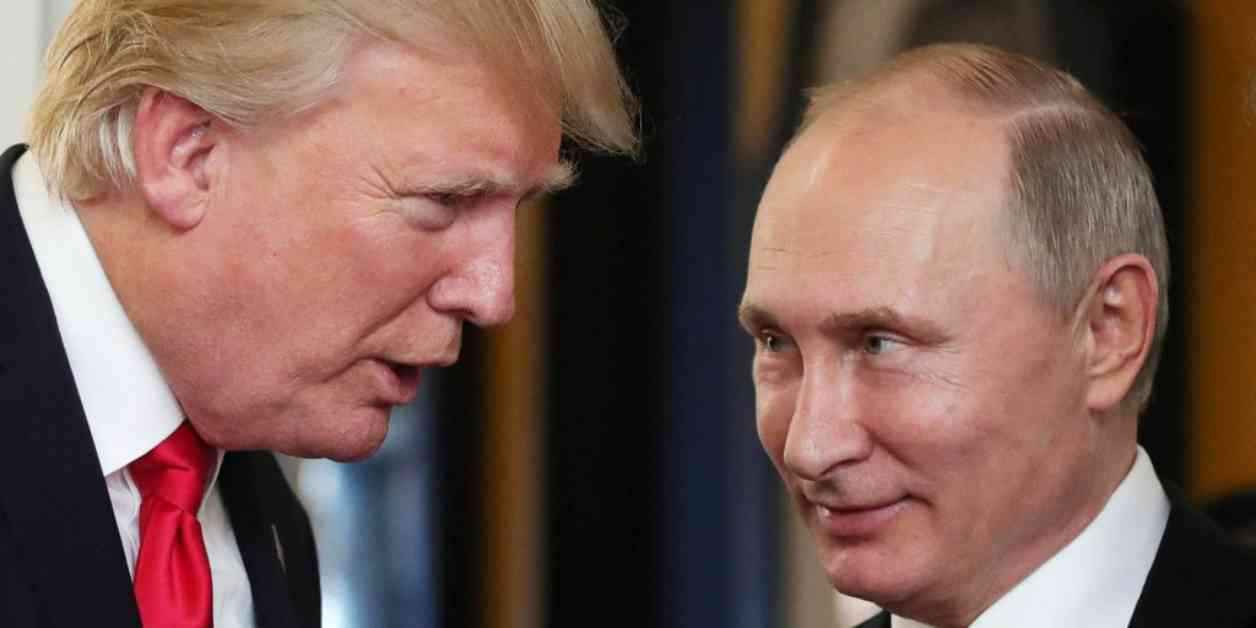President Trump’s recent shift in attitude towards Ukrainian President Volodymyr Zelenskyy has sparked a divide within Republican ranks. While traditional conservatives have stood by the war-torn leader’s side as he fights Russia’s invasion, Trump’s stance on Ukraine has evolved. Initially open to making a deal to end the conflict, Trump has grown increasingly critical of Zelenskyy, portraying Ukraine as a roadblock to peace.
Trump’s Changing Tone Towards Ukraine
In his earlier days in office, President Trump had expressed approval of Ukraine’s willingness to negotiate for peace. However, recent developments have seen him take a more hostile approach towards Zelenskyy. Trump’s frustration with Ukraine’s reluctance to grant the U.S. access to rare earth minerals in exchange for aid has colored his interactions with Zelenskyy. Michael Waltz, Trump’s national security adviser, alluded to the president’s displeasure at a Conservative Political Action Conference (CPAC) event, hinting at a potential deal that Ukraine might need to make to end the war.
Trump’s public comments, both on social media and in interviews, have painted Zelenskyy in a negative light, referring to him as a dictator without elections and a successful comedian. Despite Putin’s initiation of the conflict, Trump has shifted blame onto Ukraine’s leaders, further straining his relationship with Zelenskyy. As the war in Ukraine continues, Trump’s rhetoric against the Ukrainian leader has intensified, indicating a growing rift within Republican circles.
Reactions and Responses
Amidst Trump’s criticism of Zelenskyy, several prominent figures have spoken out against the president’s stance. Nikki Haley, former U.N. ambassador and a contender for the 2024 GOP nomination, criticized Trump for echoing Russian talking points. Even Trump’s former vice president, Mike Pence, refuted the claims, highlighting Russia’s unprovoked invasion of Ukraine. Conservative voices like Mark Levin and Ben Shapiro have also contradicted Trump’s narrative, emphasizing Russia’s aggression and Ukraine’s victimhood in the conflict.
While Trump faces backlash from some quarters, he continues to enjoy unwavering support from his base. At the recent CPAC event, attendees showcased their loyalty to Trump, donning MAGA merchandise and expressing confidence in his ability to handle the situation in Ukraine. Despite differing opinions among conservatives, Trump’s followers remain steadfast in their belief in his leadership.
Speaker Richard Grenell, a key figure in Trump’s administration, addressed the issue of Zelenskyy’s leadership at CPAC, hinting at concerns about the lack of elections in Ukraine. Grenell’s remarks resonated with the audience, reflecting a broader sentiment within the conservative community regarding Zelenskyy’s governance.
As the debate over Trump’s stance on Ukraine continues, it underscores the complexity of international relations and the intricate dynamics of political alliances. The evolving narrative surrounding Trump’s Ukraine policy serves as a reminder of the delicate balance between national interests and global diplomacy.
Peter Nicholas, a seasoned White House reporter, aptly captures the nuances of this unfolding story, shedding light on the intricacies of political discourse and the impact of diverging ideologies on foreign policy decisions. In an era marked by heightened tensions and shifting allegiances, the debate over Trump’s Ukraine policy offers a glimpse into the complexities of modern governance and the challenges of navigating international affairs.
Ultimately, the fate of Ukraine, the dynamics of U.S.-Russia relations, and the future of conservative politics hang in the balance as conflicting narratives collide, leaving room for reflection and analysis in the ever-evolving landscape of global diplomacy.


